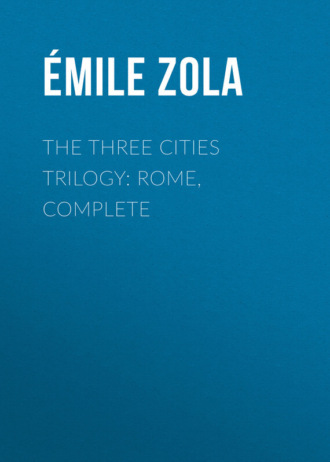 полная версия
полная версияThe Three Cities Trilogy: Rome, Complete
60
Some literary interest attaches to M. Zola’s account of Nemi, whose praises have been sung by a hundred poets. It will be observed that he makes no mention of Egeria. The religion distinguished by abominable practices to which he alludes, may perhaps be the worship of the Egyptian Diana, who had a famous temple near Nemi, which was excavated by Lord Savile some ten years ago, when all the smaller objects discovered were presented to the town of Nottingham. At this temple, according to some classical writers, the chief priest was required to murder his predecessor, and there were other abominable usages. – Trans.
61
The Italian succession law is similar to the French. Children cannot be disinherited. All property is divided among them, and thus the piling up of large hereditary fortunes is prevented. – Trans.
62
There is much truth in this; but the reader must not imagine that the Pope is never ill. At his great age, indispositions are only natural. – Trans.
63
King Humbert inherited these tastes from his father Victor Emanuel, who was likewise a great sportsman and had a perfect horror of court life, pageantry, and the exigencies of politics. – Trans.
64
“Peace unto this house and unto all who dwell in it.” – Trans.
65
“Sprinkle me, Lord, with hyssop, and purify me; wash me, and make me whiter than snow.” – Trans.
66
M. Zola seems to have fallen into error here. Many of the seats, which are of peculiar antique design, do, in the lower part, resemble stools, but they have backs, whereas a stool proper has none. Briefly, these seats, which are entirely of wood, are not unlike certain old-fashioned hall chairs. – Trans.
67
That too, was in 1843-44, and the world is now utterly unlike what it was then! – Trans.
68
The reader should bear in mind that these remarks apply to the Italian cardinals and prelates, whose vanity and egotism are remarkable. – Trans.









